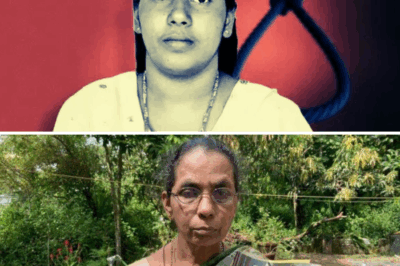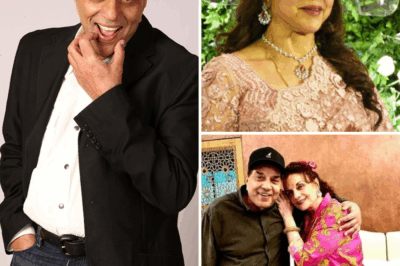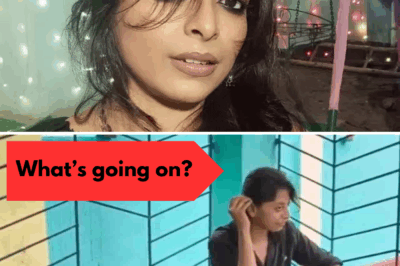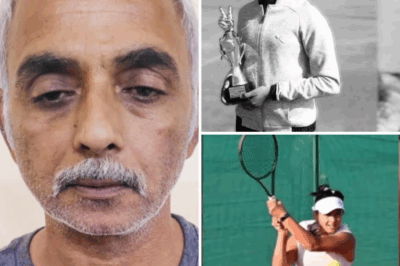In the ever-buzzing world of Bollywood, headlines are made daily. But rarely does an event strike such a deep chord that it rattles not just the film industry—but an entire state. That’s exactly what happened recently when a seemingly simple question about language turned a film promotion into a cultural firestorm.
It all began at a promotional event in Mumbai for the upcoming South Indian film KD: The Devil, starring Dhruva Sarja. Bollywood veterans Shilpa Shetty and Sanjay Dutt, who also appear in the film, were present. The event was expected to be a routine affair—photos, interviews, a few laughs. Instead, it became ground zero for a heated public debate over the status of the Marathi language in the film industry.
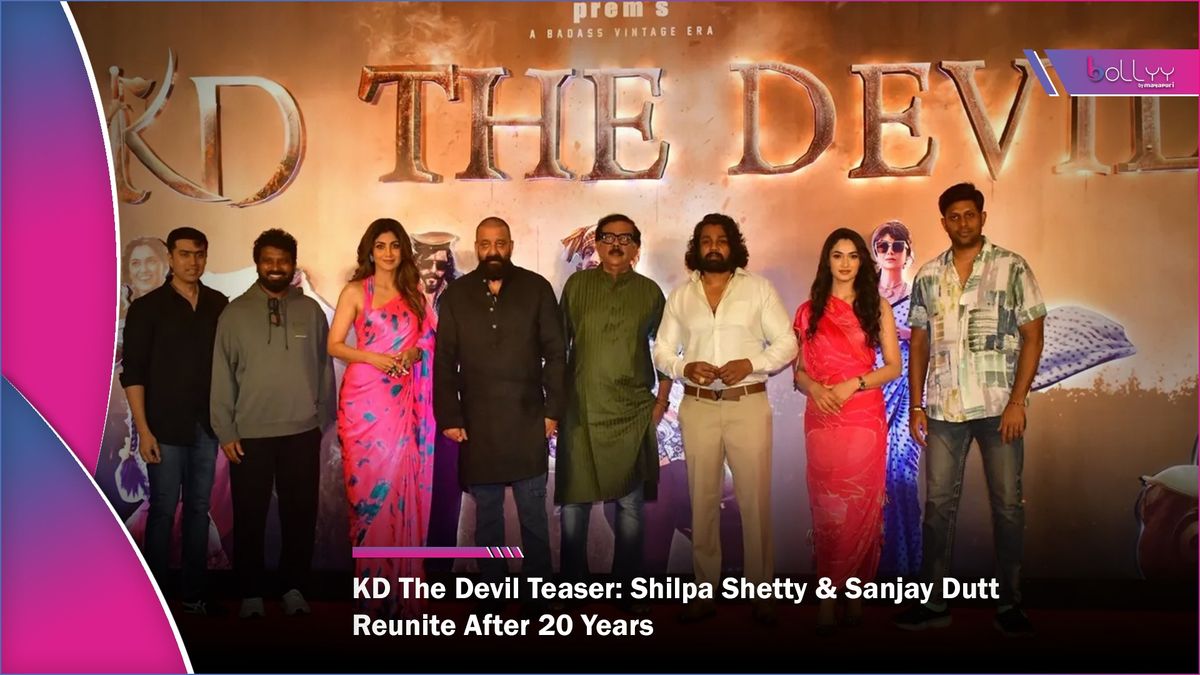
During the Q&A session with the press, a journalist stood up and asked a question that stopped everyone in their tracks:
“You’re promoting this film in Maharashtra—why isn’t it being released in Marathi? Do you not value the Marathi language?”
It was a pointed question. Not aggressive, but clearly laced with a deeper sentiment. And it hit a nerve.
For many in Maharashtra, especially Marathi-speaking communities, the question echoed a long-standing frustration: Bollywood films are often released in multiple languages—Hindi, Tamil, Telugu, Kannada—but Marathi is frequently left out, even though Mumbai is the capital of Maharashtra.
Suddenly, this wasn’t just about one film. It became a reflection of what many believe is a deeper disregard for the Marathi identity in mainstream Indian cinema.
The first to respond was Shilpa Shetty. All eyes turned toward her, anticipating either a vague answer or a media-trained deflection. But Shilpa surprised everyone.
With a calm smile, she looked into the camera and responded in Marathi:
“Mi Maharashtra-chi mulgi aahe” — “I am a daughter of Maharashtra.”
She went on to say that she’s proud of her Marathi roots, and she deeply respects the language. Her tone was gentle but confident. There was no defensiveness, no evasion—just authenticity.

In that moment, she defused a bomb.
Her response immediately went viral. Social media lit up with reactions. Supporters praised her for handling the situation with maturity and respect. “This is how you respond with grace,” one user tweeted. “Bollywood, take notes,” wrote another.
But not everyone was satisfied. Some critics pointed out that if she truly respected Marathi culture, why wasn’t the film being dubbed or released in Marathi? “Pride without action is just a word,” said one comment that gained traction online.
And then came Sanjay Dutt’s turn.
The journalist posed the same question to him—but this time, there was silence. Sanjay Dutt smiled faintly, looked toward the camera, and said nothing.
That silence spoke volumes.
Within minutes, clips of his expressionless face spread across Twitter and Instagram. Some viewers saw it as indifference. Others interpreted it as calculated neutrality. “He didn’t want to fan the flames,” said one analyst. “Staying quiet might have been the smartest thing he could do.”
But silence in a time of tension often invites speculation. Some felt he missed an opportunity to show solidarity or at least respect. Others defended him, saying not every celebrity is equipped to navigate sensitive cultural politics on the fly—and avoiding a media circus might have been intentional.
What started as a film promotion had now snowballed into a statewide conversation about identity, respect, and the role of language in public life.
Marathi organizations quickly jumped into the debate. Some demanded that any film released in Maharashtra should require a Marathi version. Others insisted that celebrities living and working in Mumbai must speak in Marathi during public events.
Then came the political voices. Leaders from Shiv Sena, NCP, and MNS (Maharashtra Navnirman Sena) weighed in. The sharpest response came from MNS, who stated bluntly:
“If you’re working in Mumbai, you should know and speak Marathi. It’s not just a city, it’s the cultural capital of Maharashtra.”
As the political heat intensified, the producers of KD: The Devil issued a public statement. They confirmed the film was being released in multiple languages and added that if needed, they would consider a Marathi version as well.
But by now, the discussion had already shifted from the specifics of this film to a broader cultural sentiment.
In recent years, many Maharashtrians have felt that their language and identity are treated as second-tier by Bollywood and big business. While Mumbai thrives as India’s entertainment hub, its native language is often sidelined in favor of Hindi and English, especially in high-profile events.
This was not just about a film—it was about recognition, respect, and representation.
Back online, the split in public opinion was clear. Some rallied behind Shilpa Shetty, calling her a class act for responding with dignity and avoiding unnecessary drama. Others mocked her for taking the easy way out—appealing to emotion without committing to action.
Meanwhile, Sanjay Dutt’s silence continued to provoke endless theories. Some said he doesn’t speak Marathi at all. Others suggested his silence was his way of saying, “I won’t be pulled into a political trap.”
Interestingly, sources close to Sanjay later revealed in an off-record conversation that he remained silent intentionally—he didn’t want the promotional event to become a media battleground.
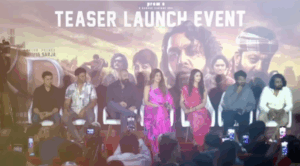
Still, the damage—or depending on perspective, the awakening—had been done.
Now, several Bollywood production houses are reportedly rethinking their promotional strategies. Some are considering releasing Marathi-language trailers alongside other regional versions. Actors are now asking their PR teams if Marathi-speaking is expected at events in Mumbai. All this sparked by one single question.
In the end, two celebrities who are usually far from controversy found themselves in the middle of a cultural flashpoint.
Shilpa Shetty, by embracing her identity, managed to win over a chunk of the audience without alienating anyone.
Sanjay Dutt, by staying silent, avoided pouring fuel on the fire—but also left himself open to criticism.
So, what does this all mean?
It means that language is not just a means of communication—it’s a symbol of pride. And in a state like Maharashtra, where cultural identity runs deep, any perceived disrespect—even unintentional—can trigger a powerful emotional response.
And perhaps most importantly, it shows that one honest question can force an entire industry to look in the mirror.
News
A Mother Beyond Blood: Mahhi Vij Opens Up About Raising Khushi and Rajveer Like Her Own Ask ChatGPT
Sometimes, it’s not blood that defines family, but love, compassion, and the willingness to open your heart when it’s least…
The Nurse Facing Execution in Yemen: Nimisha Priya’s Fight for Life and Justice
Nimisha Priya’s story is one that shakes the soul—a tale of courage, desperation, and the harsh realities faced by many…
At 90, Dharmendra Finds Solace in Farming Away From Family: A Look Into His Peaceful Farmhouse Life
At 90 years old, Bollywood legend Dharmendra has chosen a life far removed from the hustle and bustle of Mumbai’s…
New Love or Just Lights, Camera, Action? Rumors Swirl as Shefali Bagga and Faisu Spark Dating Buzz
Social media has been buzzing with speculation, curiosity, and a fair bit of confusion after internet star Faisal Shaikh—better known…
Once a Star, Now Forgotten: Beloved TV Actress Found Disoriented on Streets of Bengal
In a heartbreaking twist of fate, a once-famous face from Bengali television and film has resurfaced under circumstances that have…
A Father’s Confession: The Shocking Truth Behind Radhika Yadav’s Murder
When the news broke that 25-year-old tennis prodigy Radhika Yadav had been killed by her own father, the nation reeled…
End of content
No more pages to load



